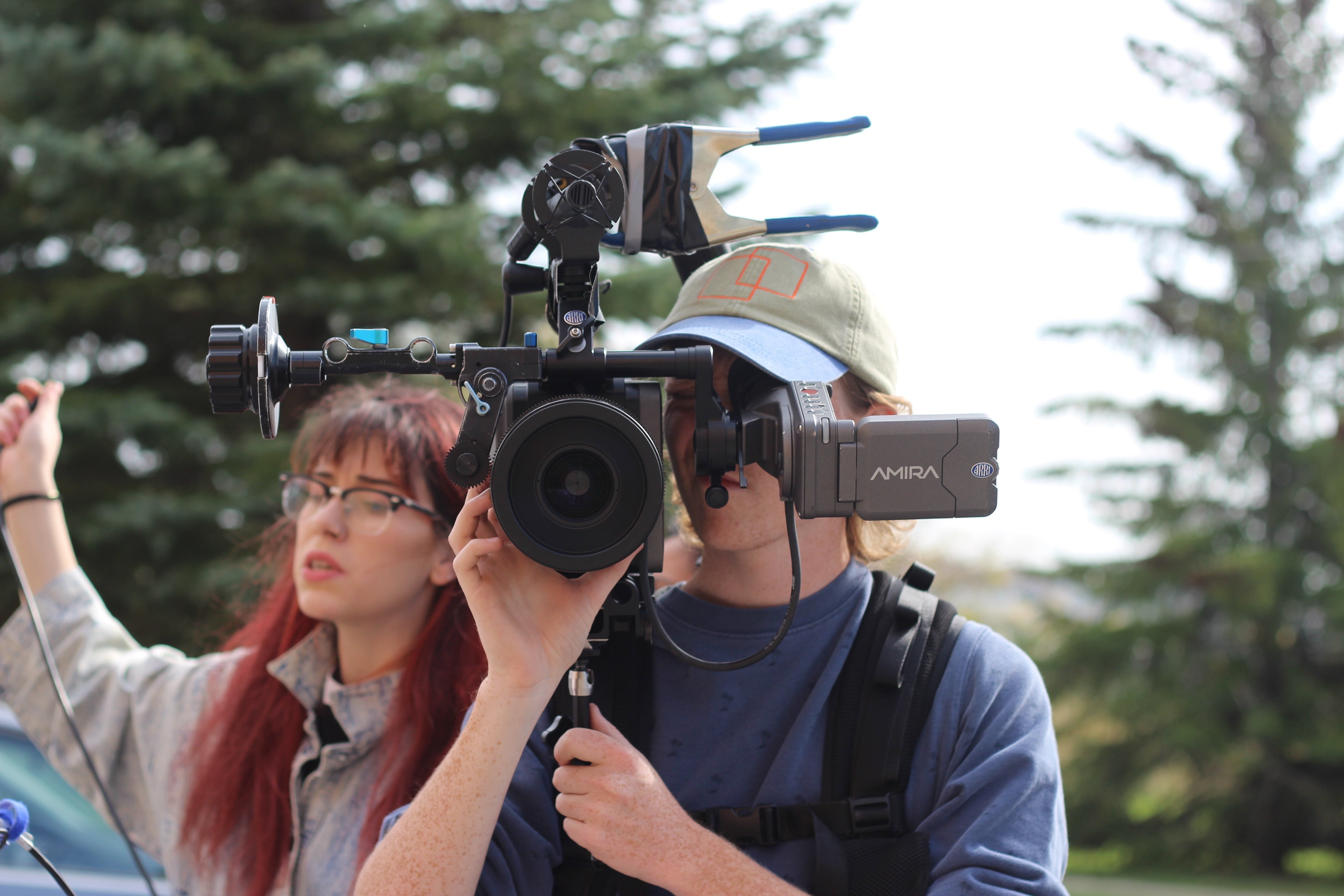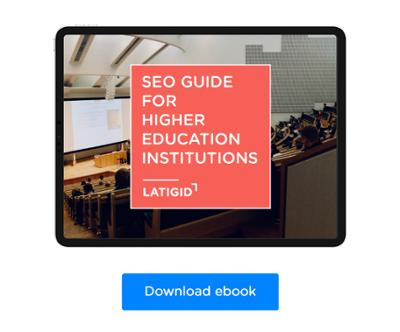
The higher education marketing landscape is constantly evolving, and 2024 is expected to see a number of new trends emerge. Colleges and universities that want to stay ahead of the curve need to be aware of these trends and adapt their marketing strategies accordingly.
In this article, we'll explore the top trends that are set to shape the marketing strategies of universities and colleges in the coming year.
Higher education personalized content

Customized messaging
Universities can use data analytics and segmentation to understand their target audience better. By analyzing factors like location, academic interests, and demographic information, they can create content that speaks directly to each group's unique characteristics and concerns. For example, prospective engineering students may receive different messaging and content than those interested in the arts.
Personalized email campaigns
Email marketing remains a powerful tool in higher education marketing. Institutions can send personalized emails that address the specific interests and stage of the enrollment process of each recipient. This can include information about academic programs, campus events, and application deadlines tailored to the individual's needs.
Content recommendations
By leveraging machine learning algorithms, universities can recommend relevant content to website visitors. This can include suggesting blog posts, videos, or other resources that align with the user's academic interests, thereby increasing engagement and keeping visitors on the site longer.
Personalized ad campaigns
In digital advertising, universities can use personalization to create targeted ad campaigns on platforms like Facebook and Google. By delivering ads that resonate with a user's interests and previous online behaviors, institutions can increase the likelihood of attracting qualified prospects.
Application and enrollment support
Personalization extends beyond the marketing stage. Universities can provide personalized support to applicants by offering tailored guidance through the application process, including reminders, document submission instructions, and financial aid information specific to the student's situation.
Related article: Best Practices for Email Marketing in Higher Education
Higher education video content

Campus tours and virtual visits
Universities can create high-quality video tours of their campuses. These videos showcase the beauty of the campus, highlight important facilities, and provide an immersive experience for prospective students who may not be able to visit in person. Virtual campus visits can be especially important for international students.
Academic program promotions
Video allows universities to present their academic programs in an engaging way. You can feature professors, students, and alumni talking about the program's unique aspects, career opportunities, and research projects. This helps prospective students better understand what they can expect academically.
Student testimonials and success stories
Personal stories from current students and alumni can be incredibly influential. These videos can highlight the student experience, achievements, and how the university contributed to their personal and professional growth.
Live streaming and webinars
Live video sessions and webinars allow universities to engage directly with prospective students and parents. Topics can range from admissions information sessions to Q&A sessions with faculty or current students.
Social media content
Short video clips and stories on platforms like Instagram, TikTok, and Snapchat can be used to provide quick insights into campus life, student activities, and events. These platforms are particularly popular among younger audiences.
Related article: Content Marketing for Higher Education: Creating High-Fidelity Content
Higher education podcasts

Student recruitment and engagement
Universities can create podcasts that offer an inside look at campus life, academic programs, and extracurricular activities. These podcasts can feature student testimonials, interviews with faculty, and discussions about the student experience. Prospective students can get a feel for what it's like to be part of the university community, which can help with recruitment efforts.
Academic insights and research
Universities can use podcasts to showcase their faculty's expertise and research initiatives. Faculty members can host or participate in podcasts that delve into their areas of specialization, share research findings, and discuss relevant academic topics. This can enhance the institution's reputation and credibility within the academic community.
Career development and alumni Stories
Alumni success stories can be a powerful way to inspire current students and connect with alumni. Universities can produce podcasts that feature interviews with accomplished alumni, discussing their career paths, experiences at the university, and the impact of their education on their professional lives.
Admissions and application guidance
Podcasts can provide valuable information to prospective students about the admissions process, application tips, financial aid, and scholarship opportunities. These podcasts can be especially helpful for high school students navigating the complex college application journey.
Campus news and updates
Universities can use podcasts as a platform to share news, events, and updates relevant to the campus community. This keeps students, staff, faculty, and alumni informed about important developments and activities on and off campus.
Educational content and lifelong learning
Podcasts can serve as a valuable resource for lifelong learning. Universities can create educational podcasts that explore various subjects, offer mini-courses, or provide insights into ongoing research. These can be open to the public or offered exclusively to alumni and current students.
Related article: Why should Universities have podcasts?
Higher education influencers

Student influencers
Universities can partner with current students, often referred to as "student ambassadors" or "student influencers," who have a strong presence on social media platforms. These students can share their authentic experiences, campus life, and insights about academic programs. Their content can provide a genuine glimpse into the university, attracting and resonating with prospective students.
Alumni influencers
Alumni who have achieved success in their careers and maintain a strong online presence can serve as valuable influencers for universities. They can share their personal stories, discuss the impact of their education, and promote the university's brand and programs to a wider audience, including prospective students and fellow alumni.
Faculty and staff influencers
Professors, researchers, and university staff who have expertise in their respective fields can also act as influencers. They can share insights, research findings, and academic achievements, helping to position the university as a leader in education and research.
Artificial intelligence (AI) and chatbots for higher education
Admissions and enrollment support
Chatbots can guide prospective students through the admissions process, answering questions about application requirements, deadlines, and program details. They can also provide information about financial aid options and assist with enrollment steps.
Personalized recommendations
AI-driven algorithms can analyze prospective students' interests, academic backgrounds, and career goals to provide personalized program recommendations. This helps students find the right academic fit within the university.
24/7 support and accessibility
Chatbots are available 24/7, making it convenient for students to seek information or assistance at any time. This accessibility is particularly valuable for international students in different time zones.
Multilingual support
AI-powered chatbots can offer support in multiple languages, catering to the needs of a diverse student population, including international students.
Related article: Top Higher Education Digital Marketing Strategies for 2024
About LATIGID
We are a higher education marketing agency. We help you grow by increasing website traffic, generating more student leads, and closing those leads into enrollment. With a deep understanding of the latest industry trends and best practices, we are well equipped to help your institution grow.
If you are looking for a higher education marketing agency to partner with, check our page to see what we can do for you!
Download our SEO guide and learn how to build a strategy to optimize your Higher Education Institution's website





